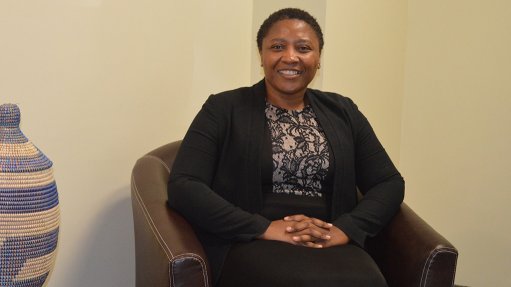
FEZEKA NOMPUMZA Only 144 000 women are currently employed , formally and informally, in the construction sector, compared with about 1.2-million men
Deliberate action in pursuit of transformation will continue to play a huge role in attracting more women to the local construction sector, says diversified infrastructure and services construction company Concor Construction business development and stakeholder engagement executive Fezeka Nompumza.
This is critical to increase women participation and retention in the sector, considering that, according to Statistics South Africa data from the first quarter of 2020, only 144 000 women are currently employed, formally and informally, compared with about 1.2-million men, in the construction sector.
Nompumza emphasises that transformation could start with women mentoring women, organisations providing mentorship programmes and companies providing opportunities specifically aimed at women.
She believes that women, such as herself and those at senior level, need to mentor other women: “I need to show them that it can be done, and I need to use my own lessons and hardships that I’ve gone through as tools to empower them.”
She joined Concor from a background in financial services, which she regards as her own personal achievement, and has served in the construction sector for only three years.
“The industry space has, so far, not been very welcoming, as women are often not given a chance or the same opportunity as their male counterparts,” she laments, noting that while government has policies and legislation in place to assist with this, the implementation and effectiveness thereof are often shrouded in doubt.
While the Preferential Procurement Policy Framework Act regulations, as an example, encourage compliance with regulations with regard to women-owned businesses, Nompumza says the policy “requires some tweaking”, suggesting that it should favour women instead of “trying to maintain a balance.
We need to be aggressive enough to encourage a change in the narrative.”
Much-Needed Dialogue
A conversation on how to inspire women to choose construction as a career of choice and how to retain them in the sector needs to take place between society and industry.
Part of the problem may be deeply ingrained societal biases against women being in technical roles, which affects the perceptions of engineering- and construction-related careers in childhood.
While not an “overnight change”, Nompumza suggests that the first step towards increasing women participation and retention could be to start at grassroots level in the South African education system.
“At grassroots level, young girls are not taught to take up technical subjects at school, and if they are, these subjects are only engineering-focused,” she says.
Nompumza laments that girls are often taught by and welcomed into the corporate world by men. “If girls were taught and surrounded by more women, it could teach them that engineering is not the only option, and that there are other jobs, such as welders and artisans, available,” she notes.
Further, legacy issues and cultural misperceptions continue to play a significant role in the slow inclusion of women in the sector, although Nompumza avers that “there is some form of change”.
To deepen the “paradigm shift” there should also be a broadening of the traditional skills sets in the construction sector to ensure the entire value chain is catered for. This could include marketing, social skills, and more, she adds.
The construction sector requires a combination of skills, with Nompumza further suggesting that career guidance at school needs to have a clear understanding of what construction means, what skills are required and what skills could encourage more women to participate.
In this regard, Concor Construction has various programmes in place that are aimed at women empowerment, leadership, mentorship and enterprise and supplier development.
Concor’s Enterprise Supplier Development programme currently has about 25 members.
These efforts, Nompumza adds, are “deliberate interventions” and an example of what is required to fast-track transformation, which is “not just about race, but also about gender equality”.
She describes the construction industry as an “evolving industry” and sug-.gests “you cannot be complacent; you have to create your own pipeline and engage your stakeholders and employees”.
Covid-19
The sluggish economy, now further hampered by the Covid-19 pandemic, will result in fewer construction projects, and a bottleneck in available opportunities.
Nompumza says regardless of the slump the industry has found itself in, the pandemic has highlighted the importance of agility and has forced many sectors to “rethink, reprioritise and rebuild” an inclusive economy, with a heightened focus on women.
She concludes that “some good must be taken from the pandemic” regarding rethinking the roles of and reprioritising women during this time, when a ‘rebirth’ of the downtrodden South African economy is required.